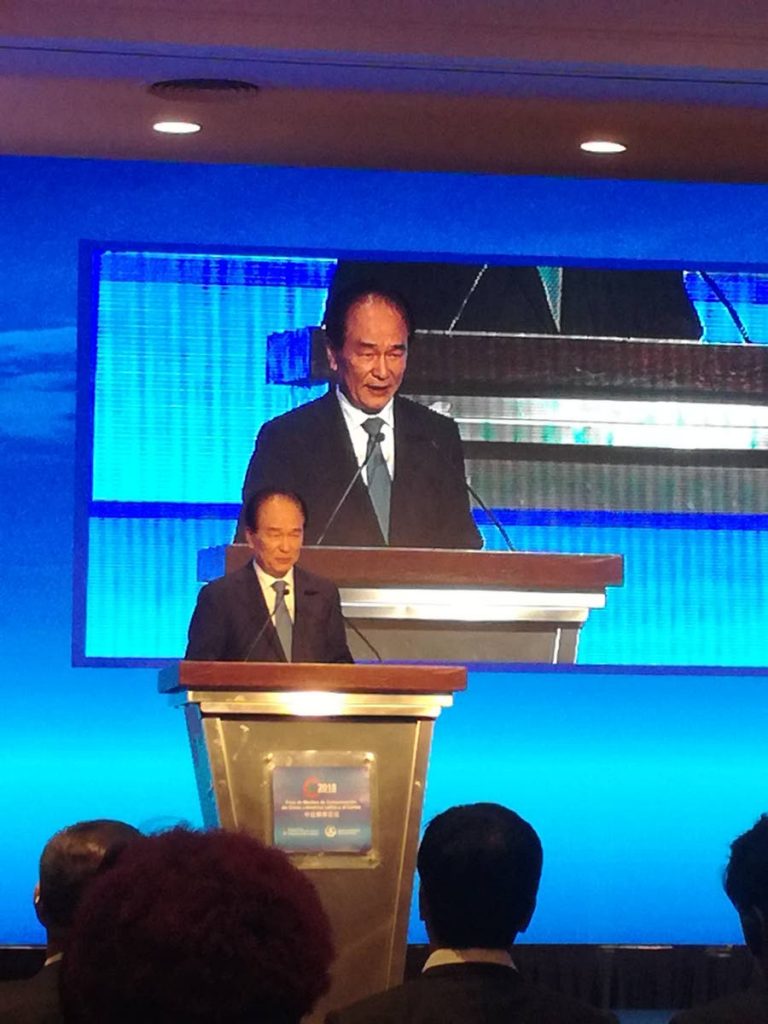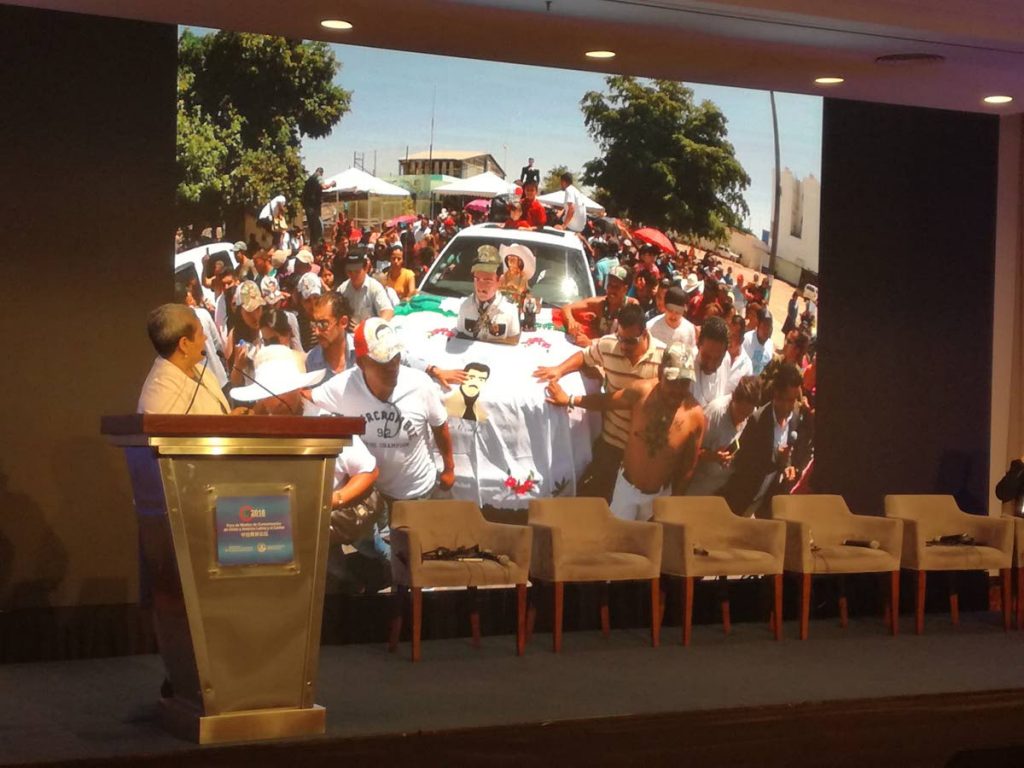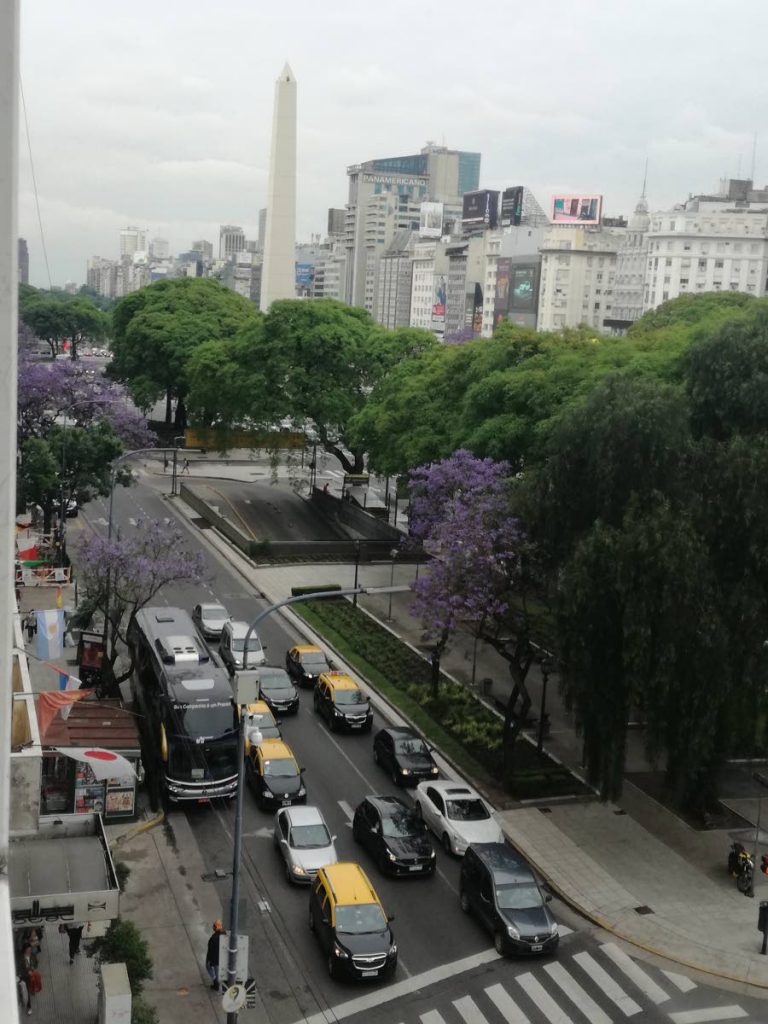Walk on the Silk Road

SEVERAL media outlets from the Caribbean and Latin America (LatAm) participated last week in a forum held in Buenos Aires, Argentina co-hosted by that country's government and Chinese media giant Xinhua News.
The forum, the third of its kind, was aimed at bringing regional journalists closer together with Xinhua News in a spirit of co-operation.
With Donald Trump's government imposing harsh trade tariffs and sanctions in an effort to protect US jobs, tightening US borders and taking a hard line stance on immigrants, China is seizing the opportunity to extend its influence among countries at the US's back door – the Caribbean and Latin America (LatAm).
Cognisant that the media has the power to shape thoughts and opinion and influence movers and shakers of commerce and politics, China, through its premier news outlet Xinhua News, is seeking to partner with the regional media. The aim is to bring news about China, its people, culture, commerce, ethics and ideologies, to the mainstream public in the Caribbean and Latin America while, at the same time, opening up to its own people, news from this part of the world.
During the media forum held last week at the Sheraton Hotel and Conference Centre, the technical might and superiority of Xinhua News was displayed for all to see.

While many media outlets in Latin America and some in the Caribbean still struggle to cope with and adapt to the social-media explosion, Xinhua News has not only embraced it, but also made a quantum leap into the realm of AI (artificial intelligence). Xinhua News uses AI in the form of a virtual-reality news presenter whose facial features and voice intonation are tailor-made for the targeted viewing audience – who may not necessarily be in mainland China.
The news organisation also uses AI to gather, edit and package raw news data and video clips sent in by journalists around the world, thereby freeing up journalists from these secondary tasks and allowing them to pursue different angles to the story, refine story content and add value to the story or video.
Xinhua News president Cai Mingzhao urged regional media houses to embrace the training being offered by Xinhua News to make the switch to digital and cyberjournalism. He underscored the value and importance of vibrant media to any country's development, and said that Xinhua News stands ready to partner with the region's media houses.
The gulf between Xinhua News and this region's media outlets in terms of using cutting-edge technology can be mirrored in the contrasts visible in Buenos Aires.
On one hand, you have modern-day Buenos Aires... a bustling, vibrant city of 16 million, with tall, sleek and elegant buildings, clean streets and efficient public officials. This mirrors Xinhua News.
On the other hand, you have unpainted tenements on the outskirts of the city, many walls festooned with graffiti, a place where the people struggle daily not only to make ends meet but to find an identity and keep pace with the rest of the city. This mirrors some Caribbean and LatAm media.

This view was brought across succinctly in a two-minute presentation by Keith Eccleston Campbell, director of the Public Broadcasting Corporation of Jamaica, the only Caribbean journalist invited to speak at the forum.
Campbell spoke of the need for Xinhua News to help regional media houses to adapt to the digital age especially since the cost to do so is prohibitive to grassroots journalists and those operating within economically depressed countries.
Campbell also invited China to consider a Caribbean country as the venue for the next media forum. The first such forum was held in 2016 in Chile and the next is scheduled for Shanghai.
TT, Jamaica and the Bahamas were the only Caribbean countries at the forum. TT alone had seven senior journalists in attendance; there were four from Jamaica, and a solitary journalist from the Bahamas. Latin America had over 100 journalists present.
Deputy head of the publicity department of the Communist Party of China Jiang Jianguo, in underscoring China's readiness to partner with the Caribbean and Latin America, declared at the media forum: ''China wants trade, not war, we want growth and co-operation and not poverty. We don't want more hurdles or challenges – and our doors are open.''
Jianguo said that like the silk road of centuries past, which saw trade between China and Portugal, the time is ripe for everyone, including journalists, to get on the new "silk road" and partner with China through co-operation and participation.
This wooing of journalists is China's latest move in its aim to exert greater influence in this part of the world and comes at a time when regional leaders in the Caribbean and Latin America have grown tired of the vitriolic posturing of US President Trump and his America-first policy. China and its president, Xi Jinping, have sought to foster deeper economic, diplomatic and political ties with several countries in the region, especially amid the growing tide of anti-Trump sentiments.
Within recent years President Xi has visited several Caribbean and Latin America countries, including TT. China has built schools, roads and hospitals; signed numerous trade agreements; and entered formal diplomatic relationships with several countries. It has positioned itself as a world superpower willing to help its allies, including the regional media, which have been invited to partner with it through its Xinhua News agency.
It remains to be seen whether regional journalists will grasp the opportunity to walk along the Chinese silk road.


Comments
"Walk on the Silk Road"